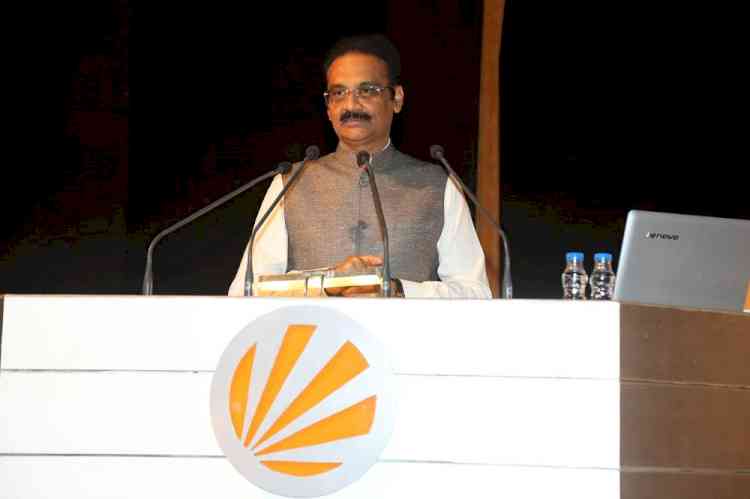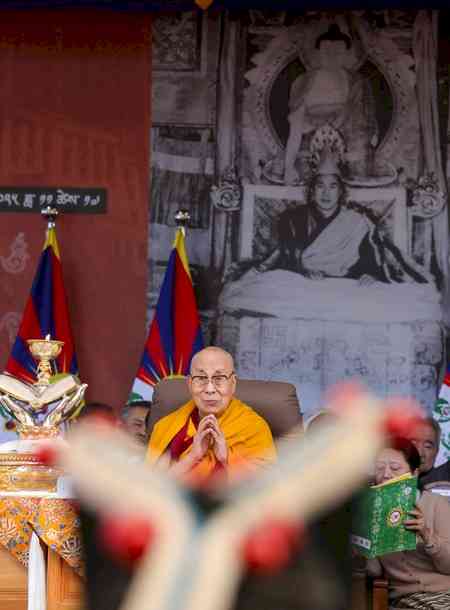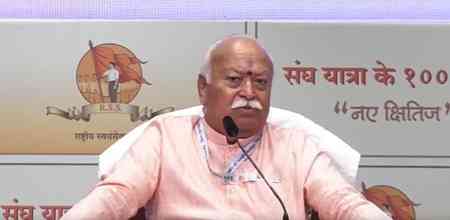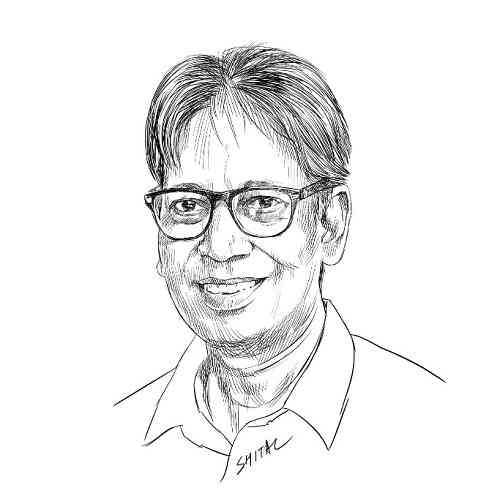Tripura govt to allow tribal students to write answers in Roman script for Kokborak language exam
In wake of the agitation by tribal students' bodies, the Tripura government on Monday announced to allow tribal students appearing for Kokborak language examinations to write answers in Roman script, along with Bengali script.
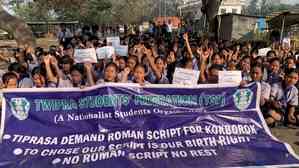
Agartala, Feb 12 (IANS) In wake of the agitation by tribal students' bodies, the Tripura government on Monday announced to allow tribal students appearing for Kokborak language examinations to write answers in Roman script, along with Bengali script.
Government spokesman and Food and Transport Minister Sushanta Chowdhury said that the students would be allowed to write answers in Roman script along with Bengali script for Kokborak language examinations of the Higher Secondary and Secondary Examinations, to be conduct by the Tripura Board of Secondary Education (TBSE) from March 1.
The Minister, on behalf of the state government, urged the Tipra Indigenous Students Federation (TISF), the student wing of the opposition Tipra Motha Party (TMP), to withdraw their agitations for the interest of the people and to maintain normal movement of rail and vehicular traffic.
Police said that hundreds of TISF activists, as part of their agitations, blockaded the roads and rail movement in around 50 places across Tripura disrupting the normal movement of train services and transportations of all kinds of public and private vehicles.
Though no untoward incident was reported in view of the agitations, 22 members of another tribal student organisation Tipra Students Federation (TSF), were arrested for demonstrating in front of Chief Minister’s Manik Saha’s residence.
The TISF activists blockaded the National Highway-8, the life line of Tripura and the lone rail route from Monday morning to protest against the TBSE’s decision not to allow tribal students appearing for Kokborak language to write answers in Roman script.
Over 5,000 tribal students would appear in both the examinations and wanted to write their answer scripts for Kokborak language in Roman script instead of Bengali.
The issue also recently rocked the Tripura Assembly session.
For several years, Kokborok language paper answers were written in the TBSE examinations in both Bengali and Roman script, but the state board recently said that only Bengali script would be allowed for Kokborak language.
The TBSE last month had directed the in-charges of all the examination centres to allow both Bengali and Roman script for writing Kokborok papers for the Class 12 and 10 board examinations but later instructed that only Bengali script would be allowed till the Central Board of Secondary Education (CBSE) gives a reply on it.
There are thousands of schools in Tripura, both government and private run, are either affiliated to the TBSE or the CBSE.
Tribal party TMP had been agitating demanding introduction of Roman script for the tribal language.
Tripura has a 12 lakh tribal population out of its 40 lakh inhabitants and 70 per cent of the tribals speak in the Kokborok language, which was recognised as the second official language by the then CPI-M led Left Front government in 1979.
The demand for the Roman script for Kokborok recently got stronger after there were reports that students in various schools in Tripura, specially the CBSE-run schools, were compelled to write answers for the subject in the Bengali script.
For over five decades, there has been a debate over the use of the Bengali or Roman scripts for the Kokborok language. While some Kokborok speakers favour Bengali, the majority of the tribal intellectuals and academicians advocate for the Roman script.
Since 1988, two commissions have been set up on the issue under tribal leader Shyama Charan Tripura and linguist and academician Pabitra Sarkar.
A TMP leader said that Kokborok is the mother tongue of the tribal people and it belongs to the Tibeto-Burman family and is close to other languages of the northeastern region such as Bodo, Garo, and Dimasa.
--IANS
sc/vd



 IANS
IANS 

